"No one believed that we would survive the day": how Ukrainian soldiers faced a full-scale offensive
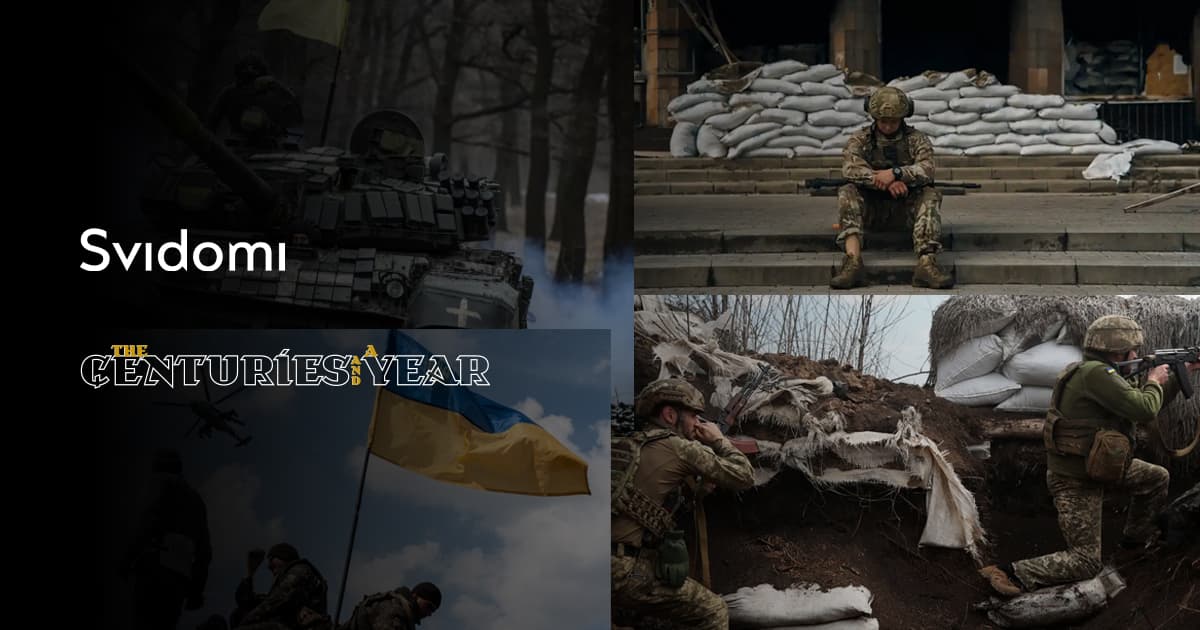
Every Ukrainian has a story of how February 24 began for them. The Russians attacked at dawn when most civilians were sleeping before the weekday. However, even then, the Ukrainian military was in a position to withstand the attack.
"We were alerted on the 22nd and sent to the south," says the representative of one of the battalions.
Svidomi talked to those who encountered the Russian offensive in different directions from the first hours of the full-scale invasion.
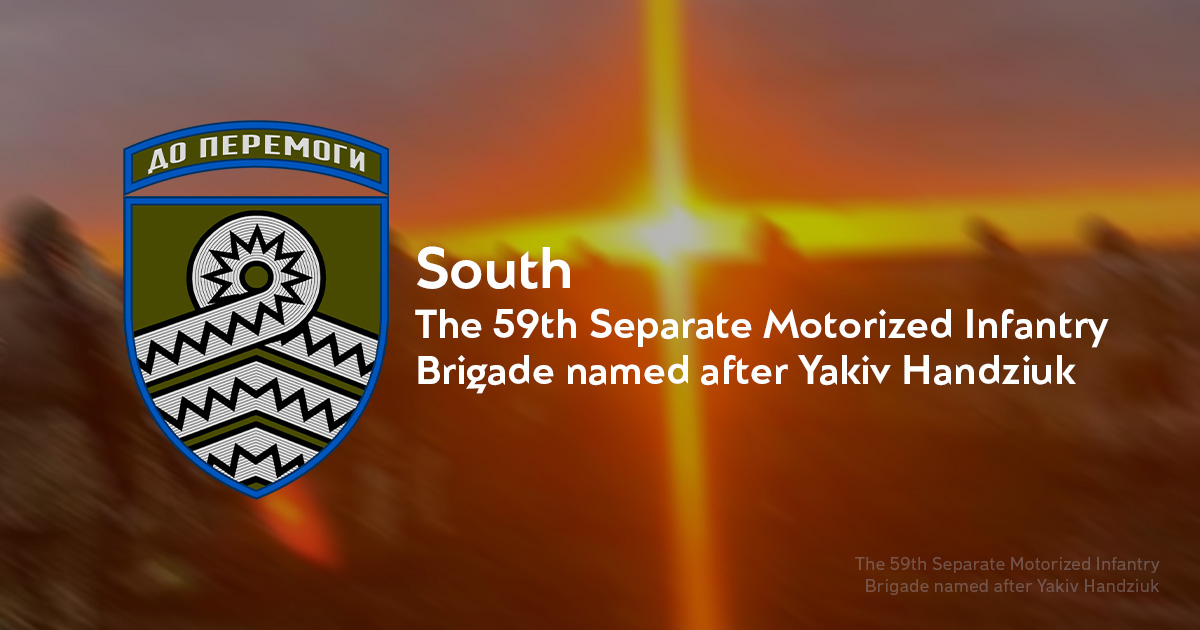
Since November 2021, the brigade was stationed at the Shyrokyi Lan training ground in the Mykolaiv region, where they underwent training and exercises. At the end of February, they were redeployed to the Oleshkivski Pisky training ground on the left bank of the Kherson region. On February 24, the brigade met there.
"This is a slightly different situation than in the Donetsk or Luhansk regions, where there have been eight years of fighting, and the military have been building fortifications and digging in. In the Kherson region, no one expected an offensive until the last minute. There were no fortifications there, just open steppes," recalls Lieutenant Oksana Kobets, a spokeswoman for the 59th Brigade.
The Russian troops landed on Antonivskyi Bridge, and thus the brigade was completely surrounded. The main combat task was to get out of it, and secure positions — with the Russians outnumbering forces, fighting for Kherson was too tricky and risky. The brigade decided to cross the bridge.
"The battle was hard, but our tankers broke through the encirclement, and, with the support of artillery, the brigade came out with minimal losses," says Kobets.
The Russians tried to advance to Mykolaiv, but the military, who had entrenched themselves in their positions, held back the offensive. Fierce fighting continued until November, when Ukrainians seized the initiative and de-occupied Kherson.
"It was a matter of honour for our brigade to liberate Kherson because, at the beginning of the full-scale invasion, we were forced to leave it," says Oksana Kobets.
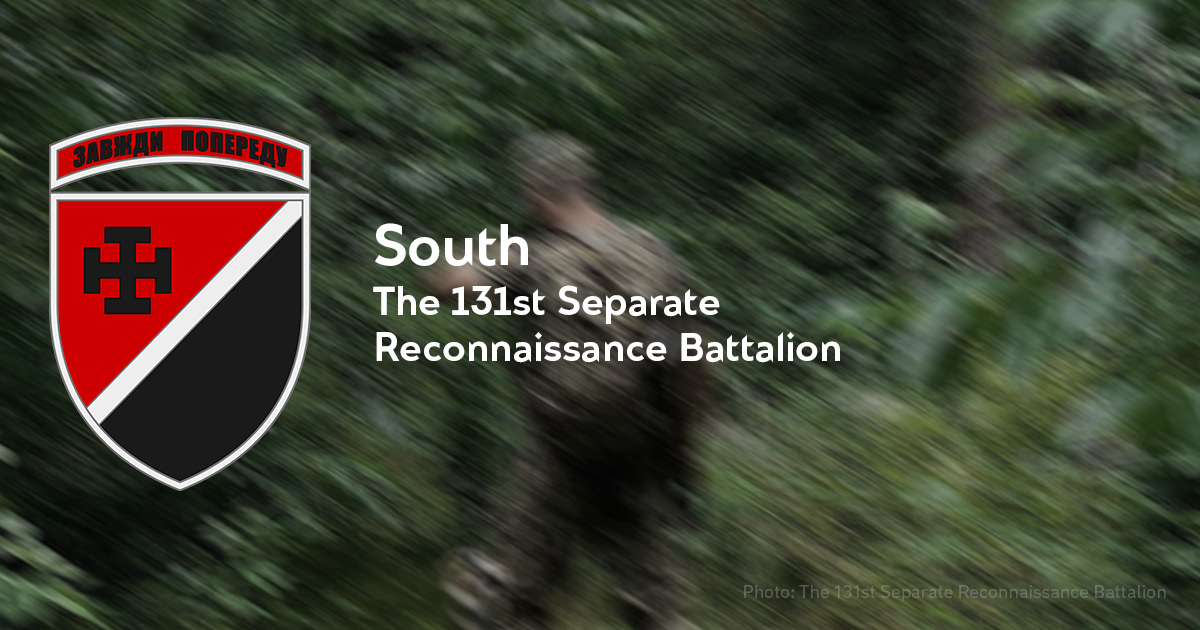
Since October 2021, a part of the battalion has been performing tasks as part of a reconnaissance detachment on the Isthmus of Perekop near Chongar. In addition, the military conducted reconnaissance of the adjacent territory, particularly in the temporarily occupied Crimea.
"Yes, our units were located near the temporarily occupied peninsula, but Russia was constantly manoeuvring its troops there and conducting exercises. Therefore, it was difficult to recognise any clear signs of further offensive, except for those that had already been reported before February 24," says Major Yurii Shvets, deputy battalion commander for moral and psychological support.
Shvets recalls that the military thought that a full-scale war was possible, considering the possibility that the Russians would strengthen the Donetsk direction or attack Mariupol from the south, but could not predict that they would turn toward Zaporizhzhia and Mykolaiv and attack in the north.
"The consequences of the offensive that Russia is now experiencing were predictable, so no one believed that the Russians would dare to launch a full-scale invasion. With the Russian army's resources, a person in his right mind would not have made such decisions," says the deputy commander of the 131st Brigade.
The military received clear signals that armed aggression against Ukraine would be launched only a few days before the full-scale offensive. The reconnaissance unit retreated with fighting when Russian troops rapidly moved out of the temporarily occupied Crimea at the beginning of the full-scale invasion. They got out without losses, and no one was taken prisoner. The soldiers joined forces with other units and moved to the Zaporizhzhia region, where they stayed until the fall.
On February 22, the rest of the battalion was alerted and sent to the south (the 131st Battalion's base is in the Vinnytsia region – ed.) Initially, the military was stationed in the Odesa region, and when the Russian offensive on Mykolaiv began, separate reconnaissance groups worked in the Mykolaiv direction.
Closer to the counteroffensive in the Kherson region, the battalion's units united and are still performing missions together in southern Ukraine.
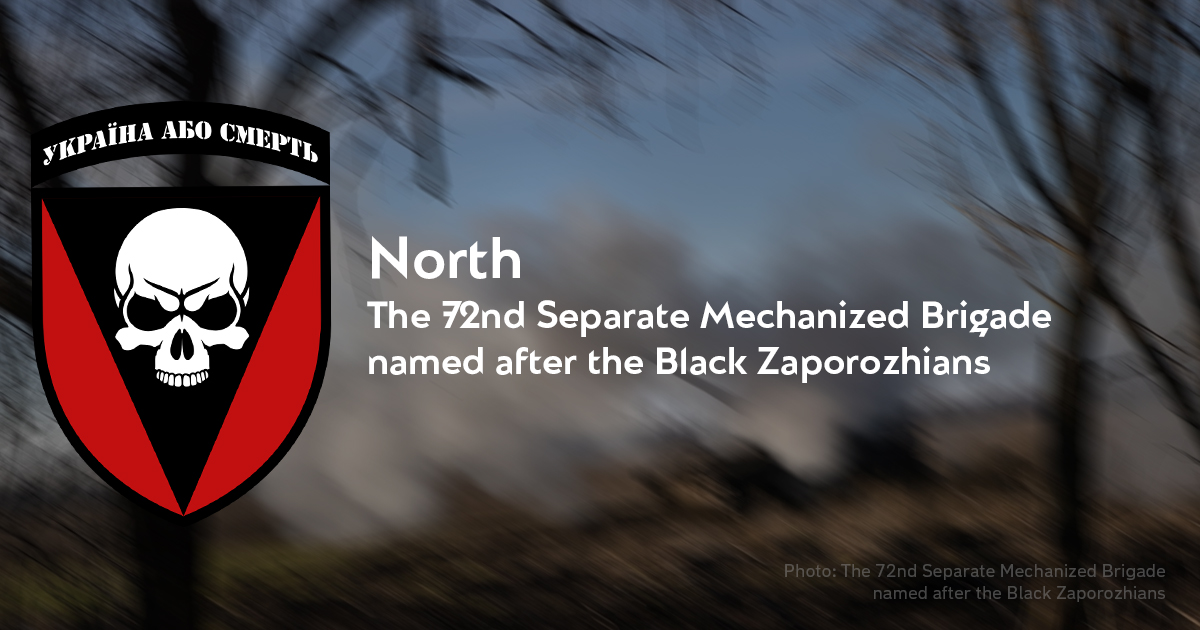
On the eve of the full-scale invasion, the 72nd Separate Mechanized Brigade, named after the Black Zaporozhians, was permanently stationed in Bila Tserkva, Kyiv region.
In early February 2022, the brigade was transferred to the Army to defend Kyiv. The commander of the 72nd Brigade, Oleksandr Vdovychenko, says that on February 20, the brigade began preparations for the defence of the city, bringing equipment and units to the outskirts of the capital.
"On February 24, part of the brigade was already on the outskirts of Kyiv and occupied the defence line, while the rest were either on the march or on the way to Kyiv. I personally was in Bila Tserkva that day," Vdovychenko says.
He notes that information about a possible full-scale invasion had already been spreading, so the brigade was preparing.
"We were constantly improving our skills. The brigade must always be ready to perform combat missions. This is exactly what it demonstrated on February 24," the soldier said.
On February 23, the then-commander of the 72nd Brigade was reconstructing the future combat zone. He drove around the right bank of the Irpin River, went to Bucha and Borodianka, and when he returned, he received a message that the Russians would attack Kyiv.
"The fact that there was going to be an offensive was felt even in the air. Everyone understood it, but no one wanted to believe it," the soldier says.
Oleksandr Vdovychenko says that the Russian offensive in the Kyiv region was not expected. "There was information that the enemy would strike the main blow in the Chernihiv region. But we did not expect that such a large number of forces and means would go to the Right Bank of Ukraine, the left flank of the brigade's defence," the military says.
On February 23, Oleksandr Vdovychenko called a meeting and warned of a possible attack. After that, he went to have a nap. He woke up when he heard explosions. At the same time, he received a call from the commander of the Land Forces. "He told me to go to Kyiv," he says.
On February 24, the 72nd Separate Mechanized Brigade, named after the Black Zaporozhians, fought its first battle. Units of the National Guard, the Main Intelligence Directorate, territorial defence battalions, consolidated airborne units and volunteer battalions also took part in the defence of Kyiv.
In the Kyiv region, the Russians deployed their "elite units". The documents received by the military referred to "exercises in unfamiliar terrain" that were supposed to last three days. The soldier believes that the way Ukrainians fought for their land in the Kyiv region can be considered the pinnacle of fulfilling their constitutional duty.
"They expected to be met here as liberators, and they [Russians] would capture Kyiv. But the resistance of the people and the inhuman forces that people put forth during the defence of the capital, every civilian who came and took up arms to fight for their home and native land fought on par with, and sometimes even better than, Russia's elite units," Vdovychenko says.
Once, the soldier thought they would not be able to survive. "We were suffering a lot of losses then. Then, one night, we went out with Shaman (call sign of a fellow soldier – ed.), and he said that the most important thing was not to be captured. The hardest thing was to hold our positions because if the Russians had managed to get to the outskirts of Kyiv, the events would have unfolded differently," the commander says.
During the defence of the Kyiv region, Oleksandr Vdovychenko recalls two incidents.
"Once, in Horianka, we met an old lady of about 60 years on the road. I offered to take her away from there. She replied that she had built that house, and if it was her fate that the house should not exist, then let her not exist either.
Another case was when a wounded soldier wanted to head for Moshchun, and when asked why, he said that his brother was lying there," he recalls.
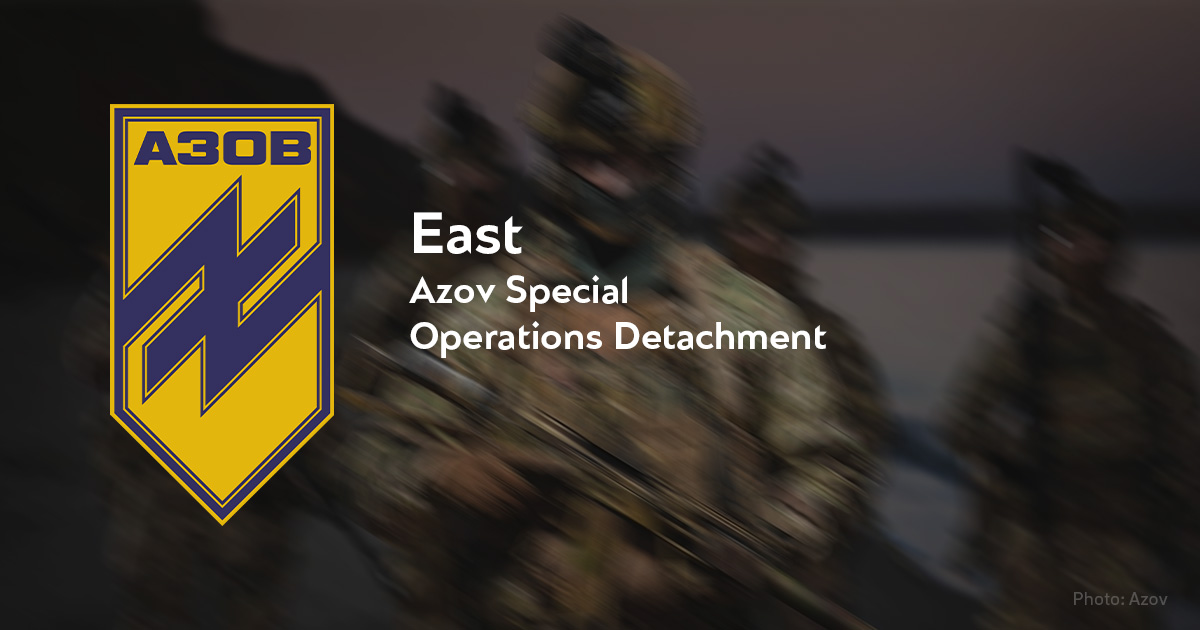
The regiment's deputy commander, Serhii Tsisaruk, says the Azov regiment was constantly preparing for a full-scale invasion.
"We understood that sooner or later, there would be a 'great war', but no one knew the date. But then, the first bells rang in the spring of 2021. Back then, we expected Russia to attack on May 9, when we withdrew to the concentration areas. Still, then it was not ready," says Tsisaruk.
He says that until the end of January, the regiment was preparing for training courses for junior officers, held annually.
"But there was information that the headquarters of the 12th Brigade of the National Guard received an order to prepare a plan for the defence of Mariupol. We were surprised because the war had been going on for several years, and this was the first time such an order had been issued," says the deputy commander.
He explains that the 12th Brigade of the National Guard of Ukraine is "sharpened" for other tasks, not as combat-oriented as a regiment. Therefore, they turned to Azov for help in developing a plan.
According to him, on February 17, Azov regiment commander Denys Prokopenko tasked battalion commanders, operational departments and intelligence with preparing an action plan for the defence of Mariupol. Then, on February 18, the Azov regiment held a meeting.
"At the meeting, Redis said that Russia could conduct exercises and we could treat it negligently. But we can't afford that because if Russia doesn't attack and we are prepared, we will have done well. Otherwise, if Russia attacks and we fail to prepare, it will be the biggest mistake," says Tsisaruk.
After that, the regiment began preparations but could not take any practical action because few people in the city believed in an attack.
On February 20, the deputy commander received a phone call and was informed that there was information that the attack would take place, and he went for reconnaissance (gathering information about the enemy or the battle site – ed.).
"I remember looking at Azovstal from the balcony on the 9th floor of a multi-storey building and wondering where we would place the command post. I just had a picture from space of the plant, and we were choosing roughly where our forces would be located," he says.
Later, the regiment's chief of staff, Bohdan "Tavr" Krotevych, called and said he needed to come to the base in Yuriivka immediately. There, Tsisaruk heard an intelligence report that the landing craft had moved in the direction of Mariupol. The entire unit was then put on high alert.
On February 21, the first meeting of the defence headquarters was held in Mariupol. "As February 24 approached, we realised that something serious would happen. So we started preparing equipment, and on February 22 or 23, we received information from intelligence that the enemy was preparing an offensive on February 25," says the deputy regimental commander.
On February 23, Serhiy Tsisaruk worked late and went to bed around 1 a.m. because he realised that "February 24 [was] the last day to get everything done because we won't be able to do it on February 25."
"At about 4 am, Tavr called and said the war had started. At first, I didn't believe him, asked what kind of joke he was making, and hung up. Then, he called me back and said I had to go to the command post. I had everything ready, put on my helmet and armour, and took everything I needed," the soldier says.
After Serhii Tsisaruk arrived at the command post, Denys Prokopenko said they were going to the Mariupol defence headquarters. When they arrived in the city, they saw that the locals were not very worried. Explosions could be heard somewhere, artillery was working on the Left Bank, but public transport was running in the city.
"Everything was quite normal. The locals did not pay much attention to the explosions because there had been an escalation at the front. And when there is an escalation, explosions were always heard in Skhidnyi (a neighbourhood of the city – ed.)," he says.
By the evening of February 24, all units had taken up their positions, and the command began establishing operations. Reconnaissance was working toward Skhidne, while other units did not engage in combat but prepared for defence.
"I remember very well that on February 26, the soldiers of the battalion, who were standing in the direction of Berdiansk and were commanded by Mykyta "Raz-dva" Nadrochiy, joked that they should be sent to Skhidnyi to fight a little bit, "because in Kyiv they are destroying the enemy, and they never fight," says Tsisaruk.
The deputy commander of the Azov regiment explains that when they were developing a plan for the defence of Mariupol, they realised that the task was impossible to accomplish because they needed more force and means.
"But no one gave up; no one gave up. On the contrary, we decided to do everything possible to accomplish the task because there was no other choice," says Tsisaruk.
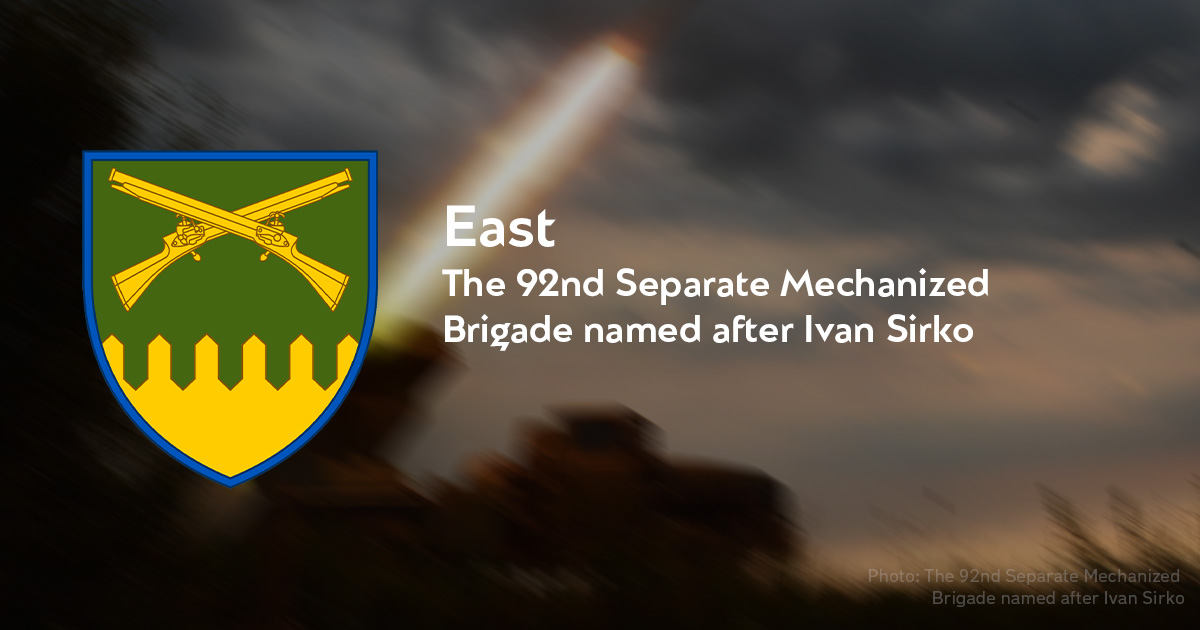
On February 18, soldiers from the No. 9 Squadron of the 92nd Brigade relocated to the Kupiansk forests. On February 24, after hearing the first alarm, they moved to the Kupiansk area to take up defensive positions. That's when they received the first information about the Russian offensive and a possible Russian landing.
"Since 2014, we have been on standby, constantly on the alert," says Anatolii, a soldier with the 92nd Brigade.
On February 24, the brigade met the Russians for the first time in the Tokarivka area. The military calls the fighting that day sporadic.
"We first met the Russian military, stopped them and moved to other areas. After that, more equipped units came to our positions. We had two armoured personnel carriers, so we had to split into groups because we could not stop ten tanks," Anatolii says.
The fighters were moving around the border during the first days of the full-scale invasion. The soldier notes that the first day of the war lasted from February 23 to 27, when he managed to sleep for several hours for the first time.
"I don't remember the first day of the war well because it lasted [several days], because we started on the 24th, and we fell asleep for the first time on February 26 or 27. We had to keep moving, so we could neither sleep nor eat; we just drank water," the soldier said.
According to him, the main task of the military in the Kharkiv direction was to stop the columns of Russian troops and then wait for reinforcements.
"The first day was scary because no one believed there would be war. When we realised Russia had attacked us, most of those I know started calling their families and saying goodbye. We were all ready to fight to the end, and no one believed we would stay alive that day," says a soldier of the 92nd Brigade.
The deputy company commander for moral and psychological support of the 92nd Separate Mechanized Brigade, call sign "Sviatyi," joined the brigade on February 24. Previously, he served in the regiment from December 2016 to January 2019 as deputy company commander for weapons.
"At one time, I served in the 92nd Brigade, so I understood military affairs and was barely mentally prepared for combat activities. Moreover, as a citizen who served in the Joint Forces or Anti-Terrorist Operation, I somewhat understood the situation at the front line. By analysing the history of Ukraine, we understood what could happen in the future. It was clear that it would happen sooner or later at a certain time," the soldier says.
Despite his readiness to defend his country, Sviatyi says that on the first day of the full-scale invasion, it was most challenging to mentally adjust to the events and military service, as he had to leave his pregnant wife in the hospital.
"On the 23rd, my wife was admitted to the hospital, and on the 24th, the war started. Thinking over the situation's complexity, I found taking the family out of the country was no longer possible because my wife was about to give birth. Then I had to make an instant decision to prevent the enemy from entering my land, given that I had minimal experience in combat," says Sviatyi.
On February 25, the woman gave birth to a son under fire and bombardment. "At that moment, it was difficult to reconcile the war and my personal life. I realised my responsibility for my family and the people under my command," the soldier says.
In the unit of the deputy company commander for moral and psychological support of the 92nd separate mechanised brigade, the main task of the soldiers was to establish the military process, to gather and organise the soldiers to make it a combat unit.
On the evening of February 24, the deputy commander received a task to take up defence near the military unit, gather the military, and plan the defence of a particular line. Later, the unit was tasked with helping mechanised units restore their combat capabilities and go on the offensive.
"The main actions took place on February 25, when we had to send our unit to defend the Kharkiv region. Then, in the morning, I received a message about the first wounded from my unit," the soldier says.
On February 24, the Ukrainian military faced a full-scale Russian offensive in other directions — Chernihiv, Sumy, Luhansk and Donetsk regions. For 364 days, they have been not only holding the line but also liberating Ukrainian territories from the Russians.


